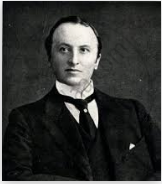Advertisements
Advertisements
प्रश्न
Answer the following question:
Discuss the main aspects of the Non-Cooperation Movement.
उत्तर
The growing antagonism of the Indians towards the British led to Khilafat and Non-Cooperation Movement. Gandhiji looked upon the Khilafat agitation as an opportunity of uniting Hindus and Muslims as would not arise in a hundred years. The Noncooperation Movement was named so because it decided not to cooperate with the Government by renunication of titles, boycott of legislature, resigning from government jobs, lawyers leaving courts, students leaving British schools and colleges, boycott of British Goods and other activities. People refused to pay taxes, no longer recognising government as legitimate.
APPEARS IN
संबंधित प्रश्न
Fill in the blanks:
The assertive nationalists believed that British rule in India was not a _________ but a ______.
Fill in the blanks:
The Swaraj Party was led by ____ and ____.
Fill in the blank:
Congress Socialist Party was formed in _______.
Fill in the blank:
Subhash Chandra Bose formed the ___ in 1939.
Fill in the blank:
Lord Mountbatten came to India in 1947 as ______.
Match the contents of Column A and Column B:
| Column A | Column B |
| 1. Lord Mountbatten | a. Jawaharlal Nehru |
| 2. 'Do or Die' | b. Subhash Chandra Bose |
| 3. Revolt of Royal Indian Navy | c. Mahatma Gandhi |
| 4. Subhash Chandra Bose resigned from Congress presidentship | d. Viceroy |
| 5. Quit India Movement | e. 1942 |
| 6. Azad Hind Fauj | f. 1939 |
| 7. Interim government | g. 1946 |
State whether the following statement is True or False:
It was because of British presence in India that the country was made a target for Japanese attack.
State whether the following statement is true or false:
The Home Rule League was formed under the leadership of Tilak.
Answer the following question:
Describe the provisions of the Government of India Act (1919).
Look at the given picture.

Identify and name him?
